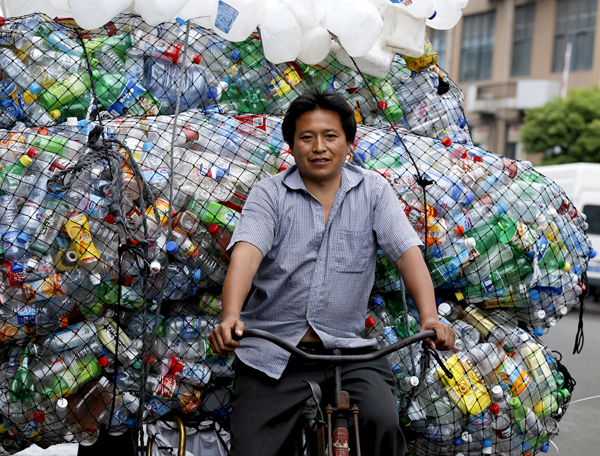|
Reviews of Recent Independent, Foreign, & Documentary Films in Theaters and DVD/Home Video

PLASTIC PLANET Like industrialized food production, plastics have long been targeted by a fervent lot of activists, environmentalists, and crunchy crusaders who say, “Thanks, but no thanks,” to this world-changing scientific breakthrough. With the convenience of the cheap, lightweight synthetic products comes a host of frightening warnings to our bodies and the planet alike. In other words, plastics are documentary goldmine. So it was with a hearty of dose disappointment that I watched Plastic Planet so clumsily disseminate these vital ideas. Werner Boote, the film’s director and omnipresent tour guide (he even appears as a cartoon character in his Magic School Bus-style graphics), had a childhood full of plastics, courtesy of a grandfather who worked in the industry and showered little Werner with all sorts of colorful, plastic toys. Still intoxicated by that synthetic smell, he sniffs and fondles plastic objects throughout the film, usually to the surprise or amusement of whomever he happens to be interviewing. His sought out cast of experts include environmental scientists, outspoken authors, and plastic surgeons whose authority on the topic ranges from absolute to anecdotal. The film intends as its climax an interview with John Taylor, the former president of PlasticsEurope, whom Boote hounds with Michael Moore-ish determination, but to little effect. Inexplicably, one interview takes place on a mountaintop, in a comically exaggerated effort to highlight the grandeur of the threatened nature. And an awkward exchange with a poorly informed young manager in a Chinese plastics factory adds yet another opportunity for a chuckle. Still, our quirky narrator, stoned on the smell of softener, as he puts it, can’t soften the impact of the barrage of frightening facts about the danger of this wonder product. Though touted as an inert substance that shouldn’t release any tastes, smells, or byproducts, Boote’s experts suggest that even light exposure to friction can release poisonous toxins from plastic, seeping from a scratched water bottle and into our blood. So many of us may be surging with plastic elements, allegedly leading to asthma, cancer, and infertility. Despite the
lackluster presentation, tales of cancer epidemics in plastic
manufacturing plants and images of plastic-cluttered bays do the trick.
We want to know how to fix the problem, and how to do so as soon as
possible. And while certain legal steps could, in theory, downsize the
800 billion euro industry overnight, the plastics we’ve already put out
into the world will be swirling in oceans and festering in landfills for
hundreds of years to come—a heavy thought for a flimsy film. Yana
Litovsky
|

